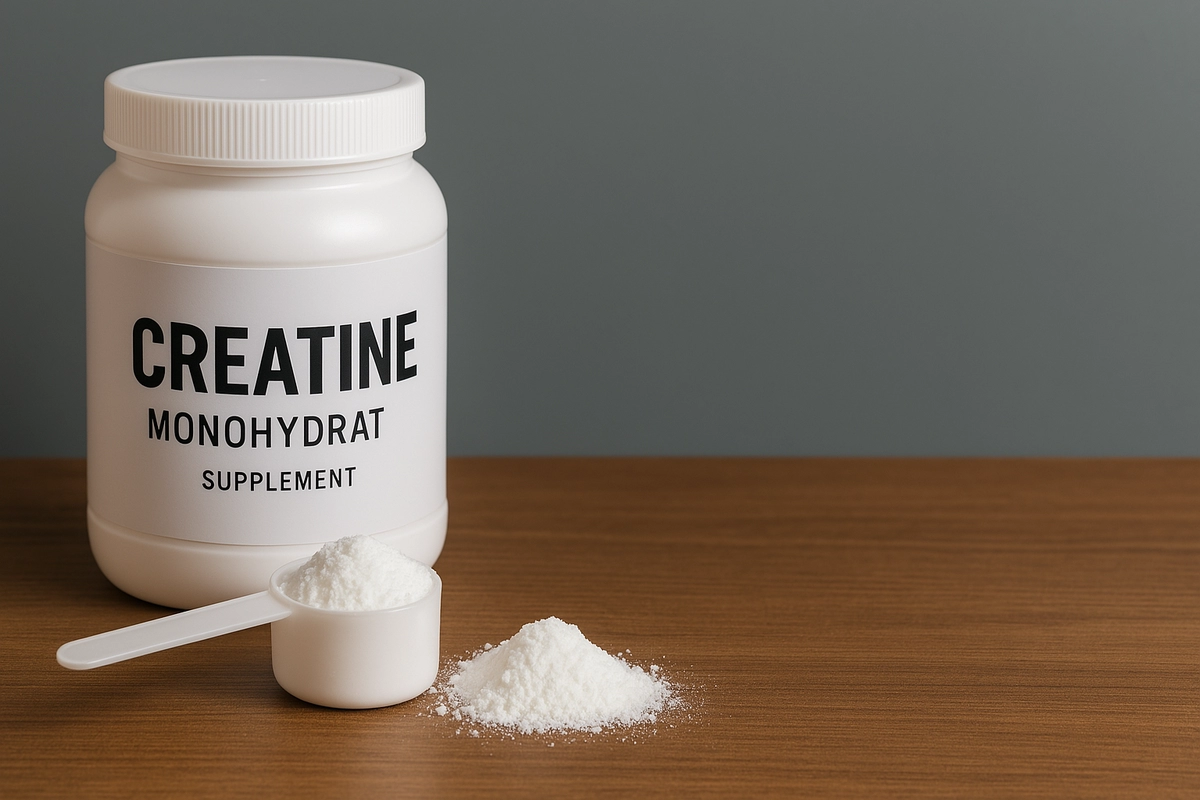Is creatine harmful to the kidneys? No, creatine is not harmful if you’re healthy and use it correctly.
I’ve personally taken creatine for over 7 years and I’ve helped dozens of clients do the same. Not one has developed kidney problems as a result.
That said, I’m not a doctor, and I always tell clients with health conditions (especially kidney issues) to get medical clearance first.
But for most people lifting, training, and pushing themselves in the gym? Creatine is safe, effective, and well-studied.
Table of contents
How Much Creatine Is Actually Safe?
Here’s how I’ve taken creatine over the years, and what I recommend to most clients:
- Loading phase: 20 grams per day for 5–7 days (split into 4 small doses)
- Maintenance phase: 5 grams per day
If you’re not into loading, just go with 5 grams daily—you’ll still get the benefits, it’ll just take a bit longer to fully saturate your muscles.
💧 And yes—hydration matters. I recommend at least 3 liters of water a day while using creatine. It helps your kidneys do their job and reduces any risk of cramps or digestive discomfort.
While most people associate creatine with bulking, creatine can actually support fat loss in women by improving workout performance and preserving lean muscle. If you’re wondering whether it’s suitable for female goals like toning or weight loss, check out this complete guide on creatine for women and weight loss.
What the Science and Real Life Say About Creatine and Kidneys
There are hundreds of clinical studies on creatine, and the consensus is clear:
Creatine doesn’t damage kidneys in healthy individuals when used in recommended doses—even over the long term.
That matches what I’ve seen in real life. I’ve worked with guys in their 20s up to late 40s who used creatine to build strength, recover faster, and push through plateaus. None of them developed kidney issues under my guidance. Some even got their labs done regularly, and all came back clean.
👨⚕️ One thing to keep in mind: Creatine slightly increases your creatinine levels, which is a normal byproduct. It can make it look like something’s wrong in a basic lab test, but a good doctor knows this doesn’t mean kidney damage—especially in active people.
A Real Story: When Creatine Isn’t Safe
One of my clients, a 40-year-old man, came to me with a history of fatigue and slow recovery. He started taking creatine on his own—without telling me or his doctor—and within a few days, he started feeling pain near his kidneys.
Turns out, he had a previous kidney issue he wasn’t aware of, and the creatine triggered symptoms.
We stopped it immediately, and I referred him to a doctor. That moment reminded me that even safe supplements aren’t safe for everyone.
⚠️ If you have:
- Kidney disease (diagnosed or suspected)
- A family history of kidney problems
- Diabetes, high blood pressure, or you’re on kidney-impacting medications
Talk to your doctor first.
My Personal Experience With Creatine
Let me give it to you straight:
I’ve been a fitness trainer for over 6 years, and I’ve been training myself for more than a decade. I’ve experimented with nearly every supplement out there, but creatine is one of the few I still use every single day.
I’ve:
- Gone through full blood panels multiple times
- Seen slight creatinine bumps—completely expected
- Had zero side effects
- Built more lean muscle and kept my strength even while cutting
Many of my clients—especially guys over 35—report:
- Improved workout recovery
- More strength and muscle fullness
- Better pumps
- Higher energy during heavy lifting days
And unlike trendy pre-workouts or sketchy fat burners, creatine is backed by decades of legit research. It’s not hype. It works—if you do.
Not sure when to start creatine in your fitness journey? Many beginners ask if they should wait until they’ve built some base strength. Here’s what really happens when you take creatine after 1 month of gym training—based on real results and muscle response.
Some users are surprised to notice weight loss instead of gain while taking creatine. Don’t worry—it’s not always a bad thing. This article explores the causes and solutions for unexpected weight loss on creatine, including water balance and metabolism shifts.
How to Take Creatine Safely (Coach’s Guide)
Here’s my proven plan to use creatine without stressing your kidneys:
- Choose high-quality creatine monohydrate – no blends, no gimmicks. I use trusted brands like Optimum Nutrition or MyProtein.
- Load it (optional): 20g/day for 5–7 days, in 4 doses
- Maintain: 5g/day, every single day
- Hydrate: 2.5+ liters of water daily
- Time it: I prefer post-workout, but honestly, timing isn’t a huge deal
- Stick with it: It’s not a magic pill—results come with time and consistency
Wondering if it’s okay to take creatine first thing in the morning without food? A lot of people do—and it’s generally fine. Learn more about taking creatine on an empty stomach, including what to expect and how to avoid discomfort.
Even lower doses of creatine can have benefits for some users—especially those with dietary creatine intake or sensitive stomachs. If you’re experimenting with minimalist dosing, here’s a breakdown of the benefits of taking just 1g of creatine daily.
Final Word: Should You Worry About Your Kidneys?
Here’s my honest take as a coach who lives this every day:
- Creatine is one of the most studied, safest, and most effective supplements out there
- If you’re healthy and use it smartly, your kidneys are safe
- But if you have ANY pre-existing kidney condition, do NOT start creatine without a green light from your doctor
No supplement replaces good training, sleep, nutrition, and hydration. But creatine? It’s a powerful addition when the basics are already dialed in.
📝 References
To provide further reading and authoritative sources on creatine supplementation and kidney health, here are some trusted resources:



Leave a Reply